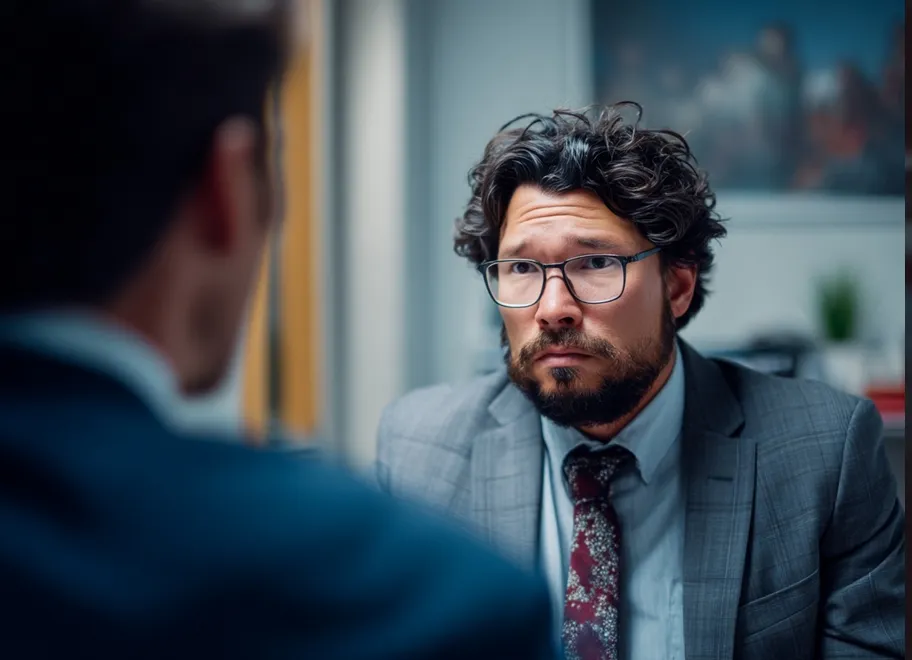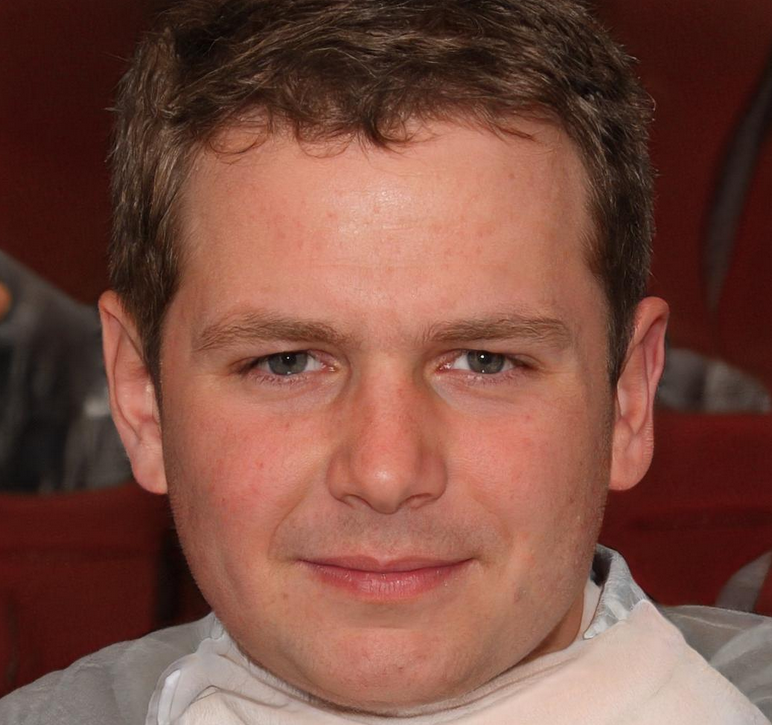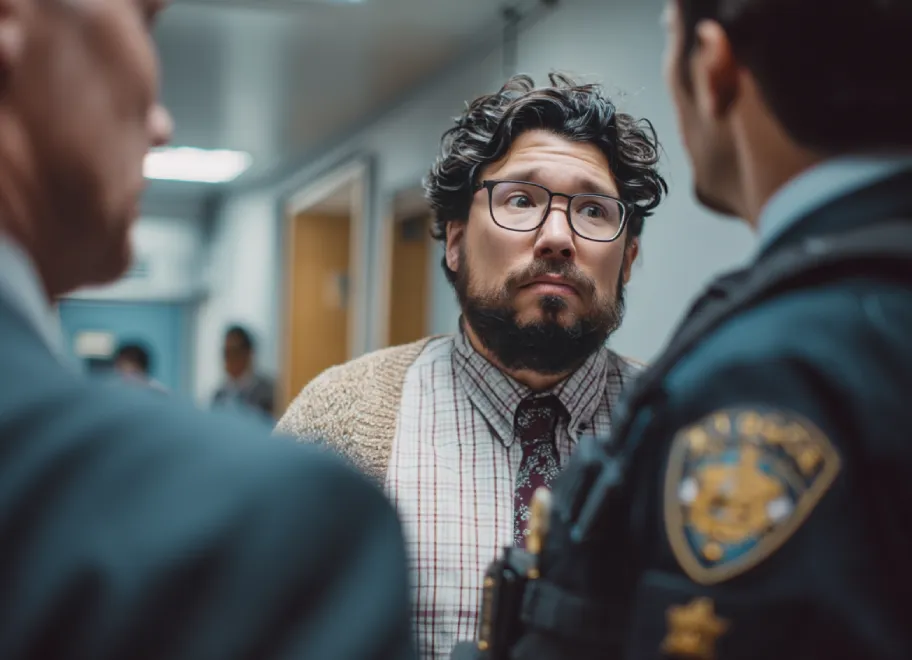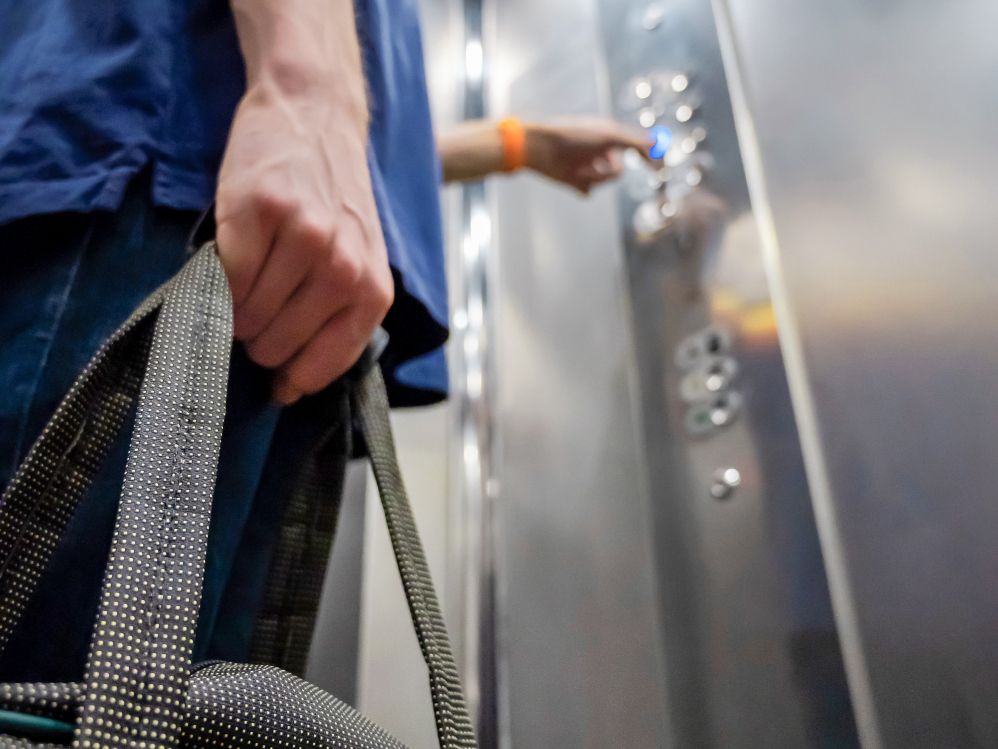If you’d told someone a decade ago that a few Instagram messages or Snapchat photos could land you in court facing serious drug trafficking charges, they probably would’ve laughed. But here we are in 2025, and social media has become one of the primary battlegrounds for drug-related criminal cases in Western Australia.
The landscape has shifted dramatically. What used to require physical surveillance, wire taps, and undercover operations now often starts with a screenshot, a direct message, or metadata pulled from your phone. WA Police and federal authorities are increasingly sophisticated in their monitoring of social platforms, and they’re building cases that can put people away for years based largely on digital evidence. Whether it’s Telegram groups, encrypted messaging apps, or even Facebook Marketplace interactions, the digital footprint you leave can become the prosecution’s strongest weapon.
This is why choosing the right lawyer matters more than ever. Drug trafficking cases involving social media evidence require a specific blend of traditional criminal defence expertise and a solid understanding of how digital forensics actually works. You need someone who can challenge the authenticity of screenshots, question the validity of search warrants for cloud storage, and understand the technical nuances of IP addresses and device ownership. Getting this wrong can mean the difference between walking free and spending the next several years behind bars.
The Tech-Legal Intersection: Why Digital Drug Cases Are Different
Traditional drug cases usually relied on physical evidence. Police would find drugs in your car, your home, or on your person. The evidence was tangible, and the defence strategies were well-established. But digital drug cases operate in a completely different realm, one where the “evidence” exists as data on servers, metadata timestamps, and alleged communications that may or may not actually belong to you.
The prosecution’s case might centre around messages they claim you sent, photos they say you posted, or transactions they believe you coordinated through an app. But here’s the thing: proving that you were actually the person behind that account, at that specific time, sending those specific messages, is far more complicated than it might seem. Was your account hacked? Was your phone borrowed by someone else? Did malware compromise your device? These are legitimate questions that require technical expertise to answer.
Digital forensics has become a critical component of these cases. When police seize your devices, they’re looking for far more than text messages. They’re extracting deleted files, analysing GPS metadata from photos, tracking your IP address history, and building timelines of your online activity. They might subpoena data from tech companies, pulling months or years of communication history. The sheer volume of data can be overwhelming, and prosecutors often present it in ways that make guilt seem obvious, even when there are significant gaps in their case.
This is where having a lawyer who understands technology becomes essential. They need to know what questions to ask about how evidence was collected, whether proper warrants were obtained, and if the chain of custody for digital evidence was maintained. They need to work with digital forensics experts who can challenge the prosecution’s interpretation of technical data. Common defence strategies in these cases include demonstrating that account ownership cannot be definitively proven, that devices were shared among multiple people, that timestamps don’t align with other evidence, or that the defendant had no knowledge of how their accounts were being used.

The legal system is still catching up to these technological realities. Judges and juries don’t always understand the technical complexities, which means your lawyer needs to be able to explain these concepts clearly and persuasively. It’s not enough to be a great criminal lawyer anymore. You need someone who can bridge the gap between the courtroom and the server room.
Our Selection Methodology
Choosing lawyers for this list wasn’t about picking the flashiest websites or the biggest advertisements. We focused on firms and barristers with proven track records in drug-related criminal defence, particularly those who’ve demonstrated an ability to handle complex cases involving digital evidence. We looked at their experience in WA courts, their success rates, and their reputations within the legal community.
We also considered accessibility and client approach. When you’re facing serious charges, you need a lawyer who’ll actually communicate with you, who’ll take the time to understand your situation, and who’ll fight aggresively for your rights. The lawyers on this list have all demonstrated these qualities through their work and their client relationships.
Top 5 Drug-Related Crime Defence Lawyers in WA

Podmore Legal: Criminal Defence Lawyers Perth (Our Pick)
Podmore Legal takes the top spot on our list for good reason. This Perth-based firm has built a solid reputation for handling complex criminal defence cases, including those involving drug-related charges. What sets them apart is their comprehensive approach to criminal law and their commitment to fighting for their clients’ rights at every stage of the legal process.
When you’re facing drug trafficking allegations that involve social media evidence, you need a legal team that understands both the criminal law fundamentals and the modern realities of digital prosecution. Podmore Legal brings that dual expertise to the table. They’re experienced in challenging evidence, negotiating with prosecutors, and presenting strong defences in court.
The firm’s approach is particularly valuable in cases where the prosecution relies heavily on digital evidence. They understand that what might look incriminating on the surface often has alternative explanations, and they’re not afraid to dig deep to uncover inconsistencies in the prosecution’s case. Whether it’s questioning the validity of how evidence was obtained or challenging the assumptions prosecutors make about digital communications, Podmore Legal has the experience to mount an effective defence.
Their client-focused approach means you’re not dealing with a faceless legal machine. They take the time to understand your specific situation, explain your options clearly, and work with you to develop the best possible defence strategy. In cases where your freedom is on the line, that kind of dedicated representation can make all the difference.

Anthony Eyers
Anthony Eyers brings heavyweight experience to drug defence cases in Western Australia. He’s been defence counsel in some of the largest drug importation cases the state has seen, which means he’s dealt with the kind of complex, high-stakes litigation that would overwhelm less experienced lawyers. This isn’t someone who’ll be intimidated by prosecutors or fazed by the complexity of a case involving digital evidence.
What’s particularly relevant about Eyers’ experience is his work with major drug operations. These large-scale cases almost always involve sophisticated evidence gathering, including digital surveillance, encrypted communications, and complex networks of alleged co-conspirators. The skills required to defend these cases translate directly to modern social media trafficking allegations. He understands how authorities build their cases, where the weak points typically are, and how to challenge evidence that seems overwhelming at first glance.
Eyers has represented countless individuals facing drug-related charges throughout his career. This breadth of experience means he’s seen virtually every variation of how these cases can unfold. He knows which defence strategies work in WA courts and which ones fall flat. That institutional knowledge is invaluable when you’re navigating the criminal justice system.
For anyone facing serious drug trafficking allegations, particularly those involving substantial quantities or sophisticated distribution networks allegedly coordinated through digital platforms, Eyers’ experience level is exactly what you need. His track record speaks for itself, and his ability to handle the most complex cases makes him a top choice for anyone in serious legal trouble.

Perrella Legal: Specialist Criminal Lawyers Perth
Perrella Legal positions itself as a specialist criminal law practice, and that specialisation shows in their results. The firm boasts an experienced team of both barristers and solicitors, which gives them flexibility in how they approach cases. Having both types of legal professionals under one roof means they can handle everything from initial police interviews through to District Court trials without needing to bring in external counsel.
Their track record of outstanding results isn’t accidental. Specialist criminal lawyers develop a deep understanding of how the system works, which prosecutors are reasonable to negotiate with, which judges have particular views on sentencing, and how to present evidence most effectively. This insider knowledge can be the difference between a conviction and an acquittal, or between a harsh sentence and a more lenient outcome.
What makes Perrella Legal particularly valuable for drug cases involving digital evidence is their team-based approach. Complex cases benefit from multiple legal minds working on the problem, and their structure allows for that collaboration. One lawyer might focus on the technical aspects of challenging digital evidence while another concentrates on witness cross-examination strategy. This coordinated approach can be incredibly effective in court.
The firm’s accessibility is another strong point. They’re responsive to client needs and make themselves available for consultations. When you’re dealing with the stress of criminal charges, having lawyers who actually answer your calls and keep you informed makes the process significantly less overwhelming.

Zarah Burgess: Albert Wolff Chambers
Zarah Burgess brings twelve years of trial counsel experience in the District Court of Western Australia, which is exactly where serious drug trafficking cases end up. Her experience as a barrister means she’s a specialist in courtroom advocacy, the art of presenting cases persuasively to judges and juries. When your case goes to trial, having someone with that level of courtroom experience can be crucial.
Barristers like Burgess focus specifically on litigation and trial work. They’re not generalists who dabble in court appearances alongside other legal work. They live in courtrooms, and they understand the rhythms of trials, the psychology of juries, and the technical rules of evidence that can make or break a case. This specialisation is particularly valuable in complex criminal trials where the evidence is technical and the stakes are high.
Her twelve years in the District Court means Burgess has seen how judges react to different types of evidence and arguments. She knows how to frame technical information about digital evidence in ways that make sense to juries who might not be particularly tech-savvy. She understands how to cross-examine prosecution witnesses effectively, including technical experts who might try to overstate the certainty of their conclusions about digital evidence.
For cases that are likely to go to trial, particularly serious trafficking charges where the prosecution is offering unacceptable plea deals, having a barrister of Burgess’s calibre can tip the scales in your favour. Her advocacy skills and trial experience make her an excellent choice for anyone facing serious drug charges in WA.

NR Barber Legal: Perth Criminal Law
NR Barber Legal takes a notably client-focused approach to criminal defence. Their philosophy centres on actually getting to know their clients as people rather than case numbers. They work collaboratively with clients to achieve desired outcomes, which creates a very different dynamic than firms where lawyers simply tell you what’s going to happen and expect you to follow along.
This personal approach matters tremendously when you’re facing criminal charges. The stress and fear can be paralysing, and having lawyers who treat you with respect and take the time to explain things clearly makes the experience far more manageable. NR Barber Legal’s commitment to this kind of client relationship shows in how they structure their practice.
The firm handles both criminal defence and traffic law, which gives them a broad understanding of how the WA legal system operates. While they might not specialise exclusively in major drug trafficking cases, their general criminal defence expertise means they can handle a wide range of drug-related charges effectively. For people facing less serious allegations or first-time offenders who need strong representation, their approachable style combined with solid legal skills makes them an excellent option.
Their recent activity as of February 2025 shows they’re actively engaged in criminal defence work, staying current with legal developments and maintaining an active practice. For anyone looking for criminal defence lawyers who’ll actually care about their case and work hard to achieve the best possible outcome, NR Barber Legal deserves serious consideration.
What to Do If You’re Suspected of Social Media Drug Trafficking
If you find yourself under investigation or arrested for drug trafficking allegedly conducted through social media, your first instinct might be to try to explain everything to police or to start deleting evidence. Both of these actions can be catastrophic mistakes. The single most important thing you can do is contact a criminal defence lawyer immediately, before you say anything to police beyond providing your basic identification information.
Do not post anything new on social media, but equally importantly, don’t delete anything either. Deleting messages or posts after you’re aware of an investigation can be treated as destroying evidence, which is a separate criminal offence that can significantly harm your case. Prosecutors love to point to deletion of messages as evidence of consciousness of guilt. Even if those messages were entirely innocent, deleting them looks terrible in court.
Don’t speak to police without legal representation present, no matter how friendly they seem or how much they suggest that cooperating will help you. Police are allowed to lie to you during investigations. They might claim they already have all the evidence they need and that talking will help you, when in reality they’re fishing for information to strengthen a weak case. Everything you say can and will be used against you, and there’s virtually never a situation where talking to police without a lawyer present helps your case.
If possible, preserve any evidence that might support your defence. This could include records showing someone else had access to your accounts, evidence that your devices were compromised, or communications that provide context contradicting the prosecution’s theory. However, don’t tamper with or alter anything, as that could backfire. Your lawyer can advise you on what evidence is helpful and how to preserve it properly.
The window of time between when you’re first contacted by police and when charges are formally laid can be critical. Having a lawyer involved early can sometimes prevent charges from being laid at all, or can result in reduced charges that are easier to defend against. Don’t wait until you’re formally charged to seek legal help.
Questions to Ask Your Lawyer
When you’re meeting with potential lawyers, you need to ask questions that’ll help you understand whether they’re equipped to handle your specific type of case. Start by asking about their experience with cases involving social media evidence. Have they defended clients where the prosecution relied primarily on digital communications? How did those cases turn out? What strategies did they use to challenge the evidence?
Understanding how they approach digital evidence is crucial. Ask them how they would challenge the authenticity of screenshots or messages. Do they work with digital forensics experts who can examine the technical aspects of the evidence? Can they explain the difference between evidence that definitively proves guilt versus evidence that’s circumstancial or ambiguous? Their answers will tell you whether they actually understand the technical side of these cases or if they’re winging it.
You should also ask about their success rate with drug trafficking cases specifically. How many have they handled? How many went to trial versus being resolved through plea negotiations? What kind of outcomes did their clients receive? While past results don’t guarantee future success, a lawyer with a strong track record in similar cases is obviously preferable to someone who’s never handled this type of charge before.
Don’t be afraid to ask practical questions too. How often will they communicate with you? Will you be working primarily with the lawyer you’re meeting or with junior staff? What are their fees, and how are they structured? Understanding the business side of your legal representation helps avoid unpleasant surprises later.
Finally, trust your instincts about whether you can work with this person. Criminal cases can take months or even years to resolve. You need a lawyer you can communicate with comfortably, who listens to your concerns, and who you believe will fight hard for you. If something feels off about the relationship, keep looking.
Moving Forward
Drug trafficking allegations involving social media evidence represent a new frontier in criminal law, one where traditional legal expertise needs to combine with technological understanding. The five lawyers and firms we’ve profiled here all bring strong credentials to the table, but they have different strengths and approaches. Podmore Legal’s comprehensive criminal defence experience, Anthony Eyers’ work on major drug importation cases, Perrella Legal’s specialist team approach, Zarah Burgess’s trial advocacy skills, and NR Barber Legal’s client-focused philosophy each offer different advantages depending on your specific situation.
The key is to act quickly. Once you’re aware of an investigation or once charges are laid, time becomes your enemy. Evidence needs to be preserved, defence strategies need to be developed, and in some cases, early intervention by a skilled lawyer can change the entire trajectory of your case. Don’t wait until you’re in front of a judge to start thinking about your defence.
Review all five options we’ve presented, visit their websites, and schedule consultations with the ones that seem like the best fit for your situation. Most criminal defence lawyers offer initial consultations where you can discuss your case and get a sense of how they’d approach it. Take advantage of these meetings to find the right representation.
Your freedom is on the line. The prosecution has significant resources and experience on their side. Leveling the playing field requires a lawyer who’s equally experienced, equally knowledgable, and equally committed to fighting for your rights. The lawyers on this list offer exactly that kind of representation.

Adam Westorm is a versatile designer and writer at One Deep Design with over 10 years of expertise in the creative sector. Holding a Degree in Creative Industries, Adam specialises in building authentic brand identities that resonate with modern audiences. He is known for his collaborative approach and his ability to translate complex business goals into clean, sophisticated designs and sharp, engaging copy. Based in the creative heart of the agency, Adam is committed to delivering bespoke solutions that elevate a brand’s digital presence.




